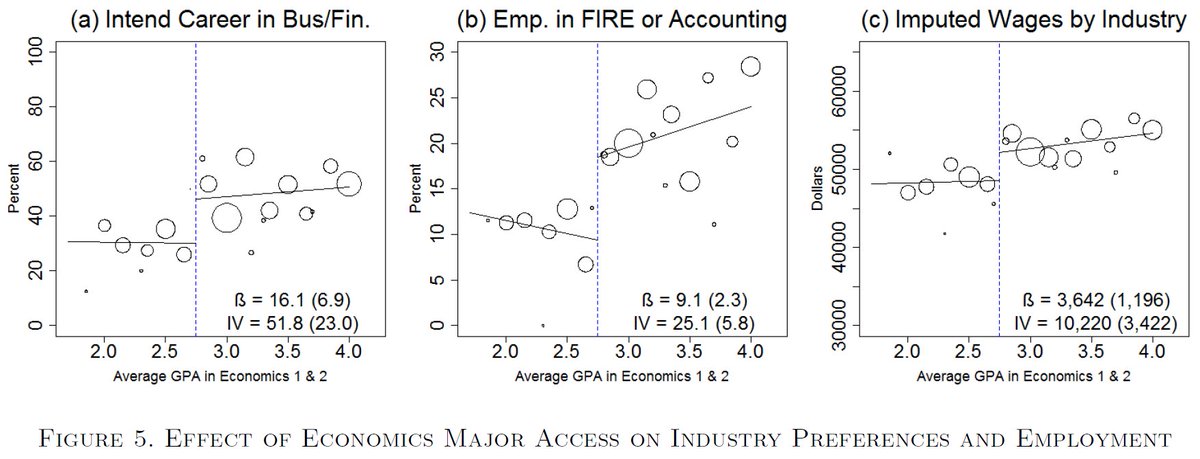
Now published: Looking for a great way to explain regression discontinuity designs to undergrads? Show them the causal wage return to majoring in economics! A short thread. #EconTwitter
https://twitter.com/AEAjournals/status/1374365803269779461
In 2008-2012, UC Santa Cruz limited access to its economics major to students who earned at least a 2.8 GPA in their first two economics courses. Compliance was imperfect, but having a 2.8 GPA made students much more likely to declare the economics major. 

Link all of those introductory economics students to their mid-20s annual wages, and voilà: students with a 2.8 economics GPA have $8,000 higher average wages. That implies that majoring in economics caused those students to earn $22,000 more in their mid-20s. 

Why do UCSC economics majors earn more? Educational outcomes like grades and completion don't explain it. But econ majors become much more likely to WANT to go into business/finance careers, and then they're more likely to do so. Industry explains about half of the wage effect. 

Finally: Let's say you guessed the wage return to majoring in economics by using the difference in average wages between econ majors and UCSC students' second-choice majors (mostly psych and other social sciences). How close would you be to the estimated true return?
Turns out that you'd almost hit the nail on the head! Whether you use UCSC, state, or national wage averages, you'd slightly UNDERshoot the estimated return to majoring in economics. This appears to be because lower-GPA students have slightly above-average returns to the major. 

Thanks for reading; I hope that you (and your students!!) find this helpful! Here's an ungated version of the forthcoming paper: zacharybleemer.com/wp-content/upl…
P.S. The wage return to studying economics is Equal Opportunity! Majors earn $22,000 more whether they're male or female, and underrepresented minority students earn the same return as their non-URM peers. And that's just in their mid-20s; if anything, the return grows with age.
• • •
Missing some Tweet in this thread? You can try to
force a refresh


